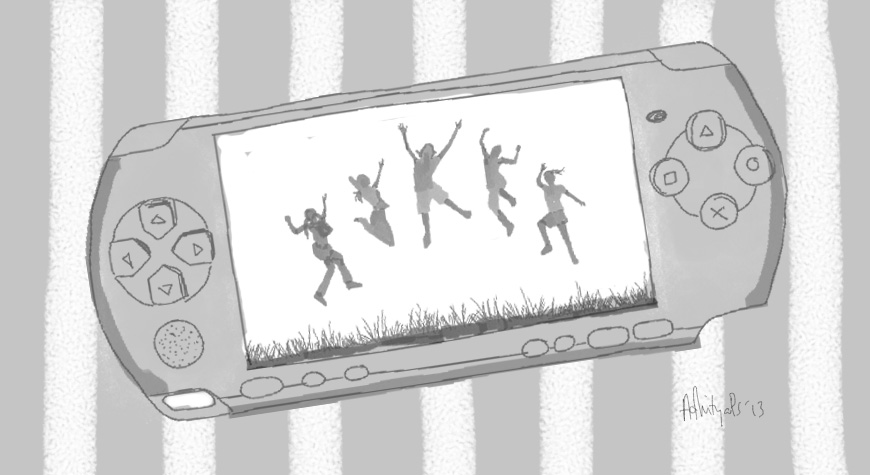Parents and educators have increasingly complained about their children’s digital obsession. These kids sit for hours in front of their laptops, browsing, chatting and playing games. Their table manner suffers, as they hunch over their gadgets during dinner, giving monosyllabic answers to parents’ attempt at conversations. On road trips, instead of playing “I spy”, they watch movies on the DVD player or on their tablet.
The parents’ concern is that digital addiction has caused their kids to have poor social skills, but I, for one, believe that this doesn’t have to be so.
But, first, let me tell you where my belief comes from. Every generation has something to complain about the next generation, a skill most successfully passed from parents to children. The irony is that we are the ones who raise the next generation, who mold them into who they’ve become. So do we bring up our kids just so we have things to complain about?
When I was a kid, I have no cable TV, no cell phone, no Internet, no tablet computer and no social media. Instead of cable TV, we rented videotapes, and even then I could only watch movies on weekends. Talking on the phone involved using a fixed line telephone with a rotary dial, and my social life entailed attending “pasar malam” (night fair) with the neighbor kids.
My students now have PSP and Nintendo; are verse on the iOS and windows systems; and can’t survive a day without Internet access. Like other teachers, it has become a challenge for me to win their attention, but instead of giving up and complaining, I have accepted it as a challenge.
I started by changing my teaching method. Know your enemy they say, so I dived into their world. I watched the movies they watched, played the games the played, and in general tried to familiarize myself with their online world. Instead of taking away their PSP, I bought one and installed the same games they played. I trained hard to get good at the games, so I could win against them.
After math quizzes, I gave them a bonus by teaching them how to finish their game on their own console. We even had Console Day, where they could bring their consoles to class to play with after the quiz. The kids learned math and some game tricks. I don’t only teach, but we’ve become friends.
Instead of banning cartoons, we did roleplays based on them: Jimmy Neutron, Strawberry Shortcake, Dora and Sun Go Kong went on a treasure hunt. The kids were socializing. They had fun and so did I.
In my 13 years of teaching, parents complain a lot, and I found that some of the complaints were self-generated, if not pure delusional.
Once, a woman told me her 3 year-old son wasn’t talking fluently yet. I asked whether she encouraged him to do so by regularly chatting with him.
She gave me a puzzled look and said, “I have to work, but I’ve bought him many DVDs to help him talk."
I investigated further and found that the boy wasn’t talking. He bleated, like the sheep on Shaun the Sheep DVDs he had been watching.
Another parents complained about how their son had been using their credit cards for downloading apps on his iPad. I found out that this was made possible by the fact that no grown-ups had been accompanying him on his Internet time.
In both cases, the parents claimed to be too busy working, but at the price of losing connection with their kids. How could you reach out to the kids when you make yourselves unreachable?
When our school decided to integrate the Internet into our curriculum, a lot of parents were angered. They asked how we allow the students to use gadgets like iPads, when the kids were already attached to them at home.
But we told them that the school’s move was not only aimed at teaching the kids how to use technologies. We also want them to learn how to protect themselves from it. We teach them self-discipline by choosing the right time to play with the tablets, a system most likely not practiced in their own homes.
We don’t hate technology. If that’s what the kids love, then we use it as a tool to reach out to them. I’m certainly not the best teacher, but instead of complaining, I try to find the best solution.
In the end, I believe that with the right efforts, humans can be more charming and interesting than the Internet.
About Yudith Tirza
Yudith is a kindergarten teacher who currently works in Surabaya, East Java. She's been teaching for 13 years now and deals mostly with special need kids. She has a fetish for coffee.








Comments